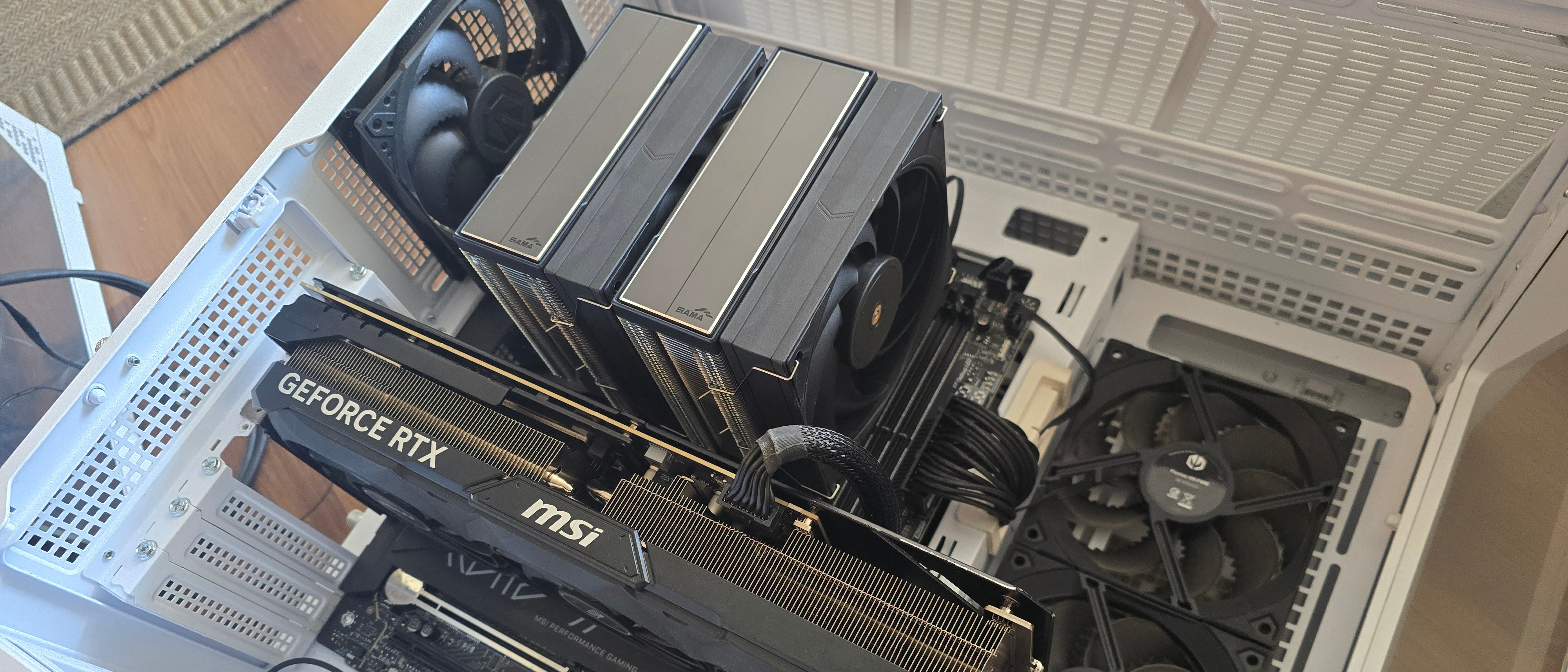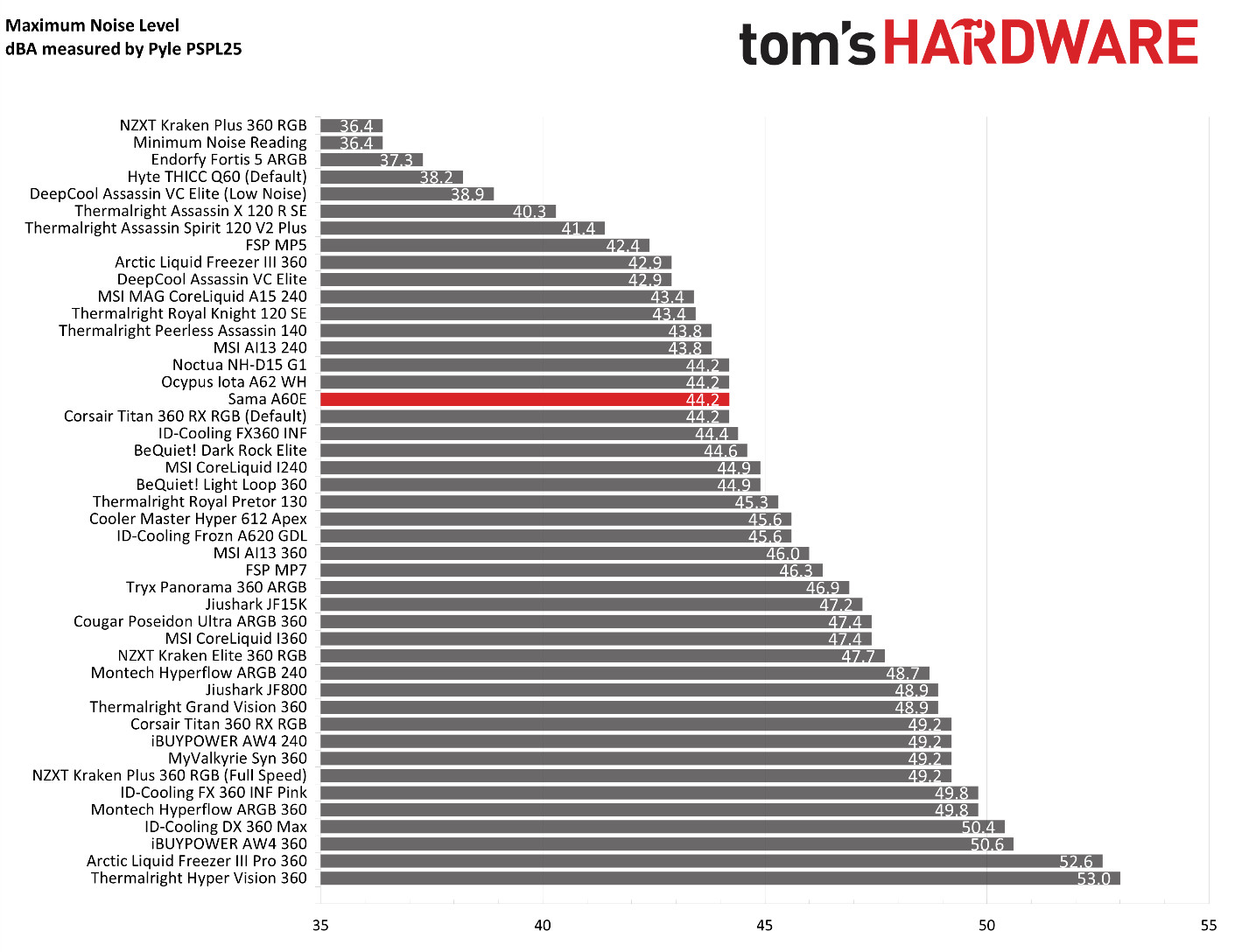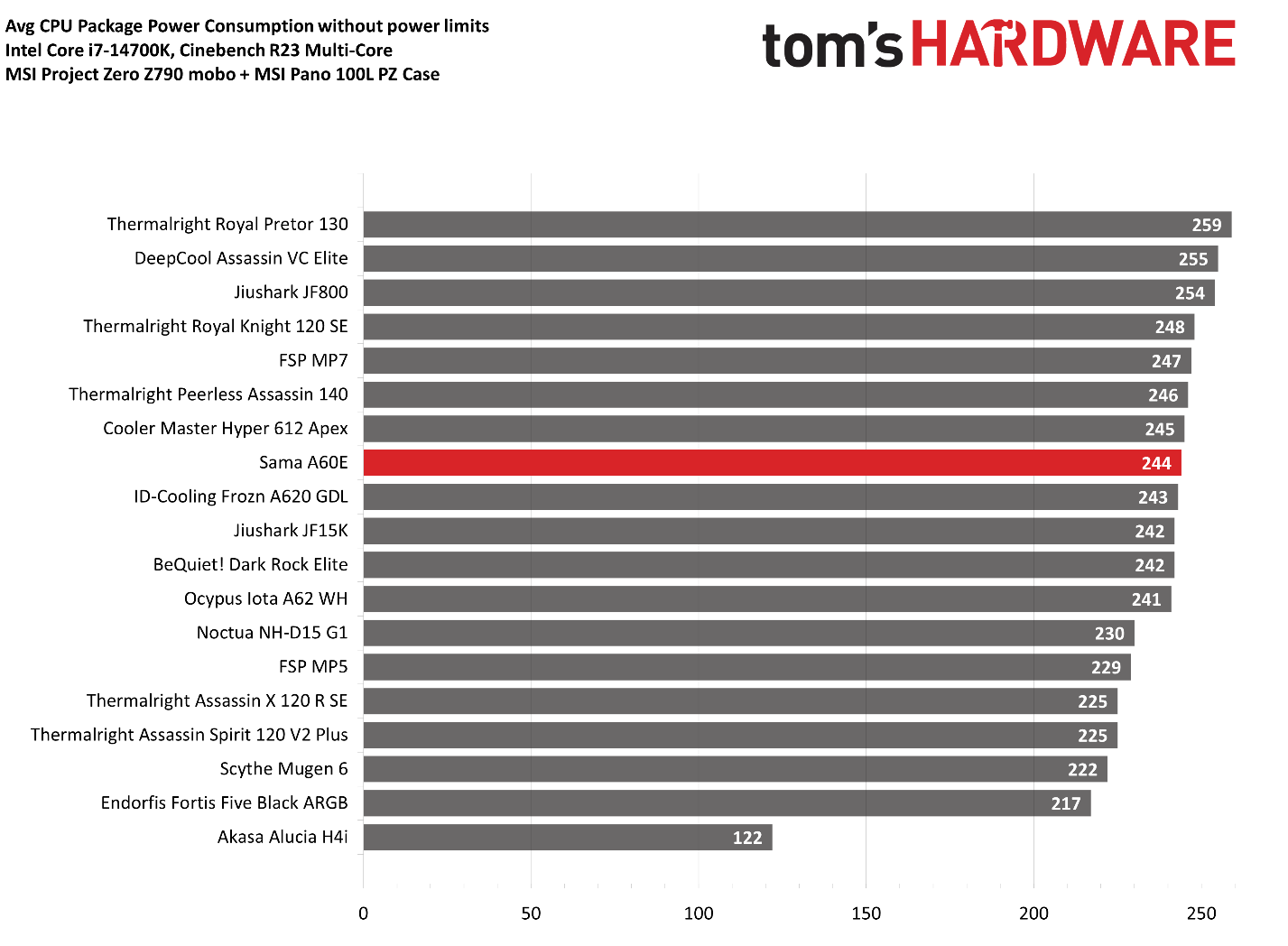Why you can trust Tom's Hardware
Thermal paste benchmarks
Before covering our traditional air cooling benchmarks, I wanted to go over the included thermal paste, especially since it’s from a brand most readers aren’t familiar with.
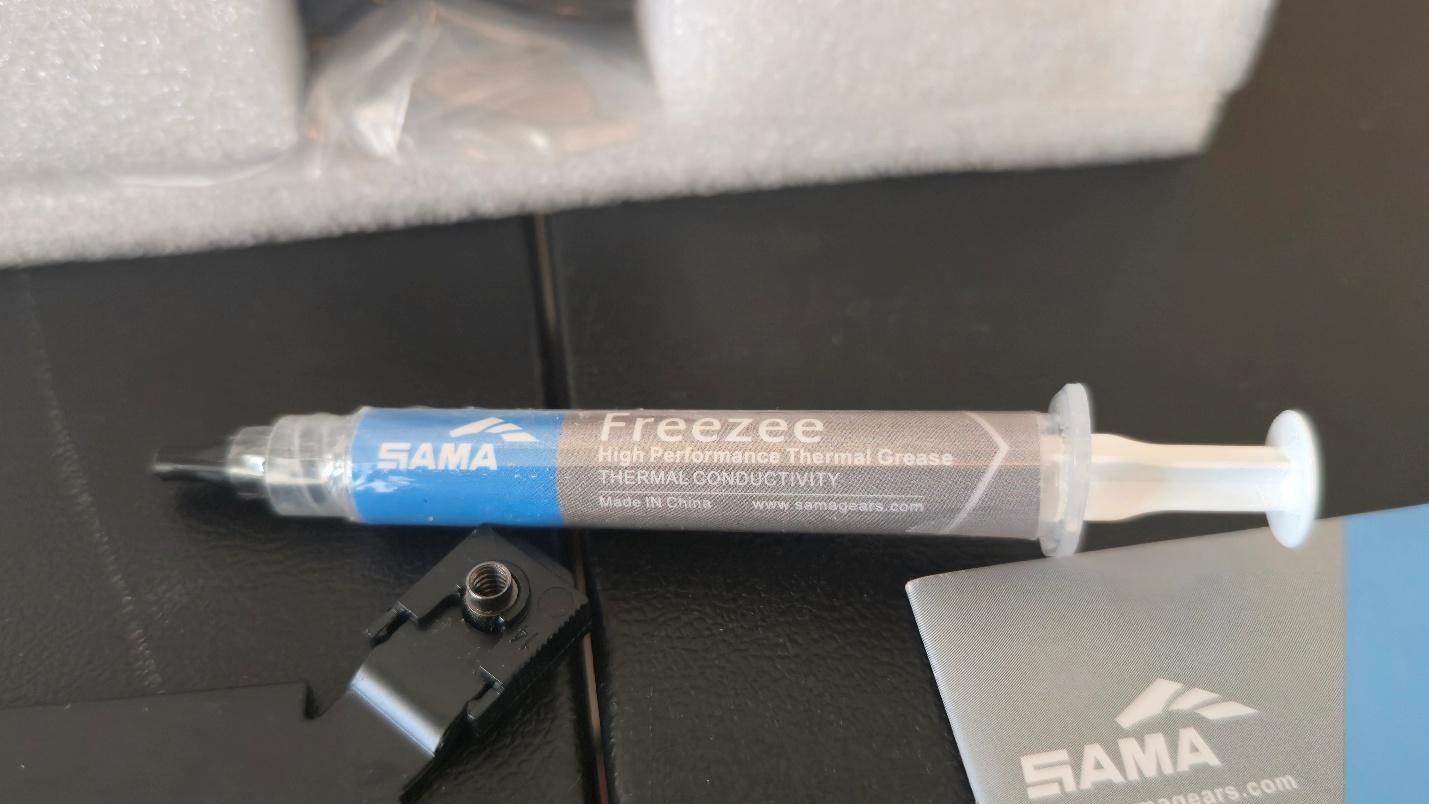
We’ve been testing thermal compounds this year on AMD’s Ryzen 9 9950X, and the results from the included Freezee thermal paste were very good, showing the third-best performance among traditional thermal pastes.
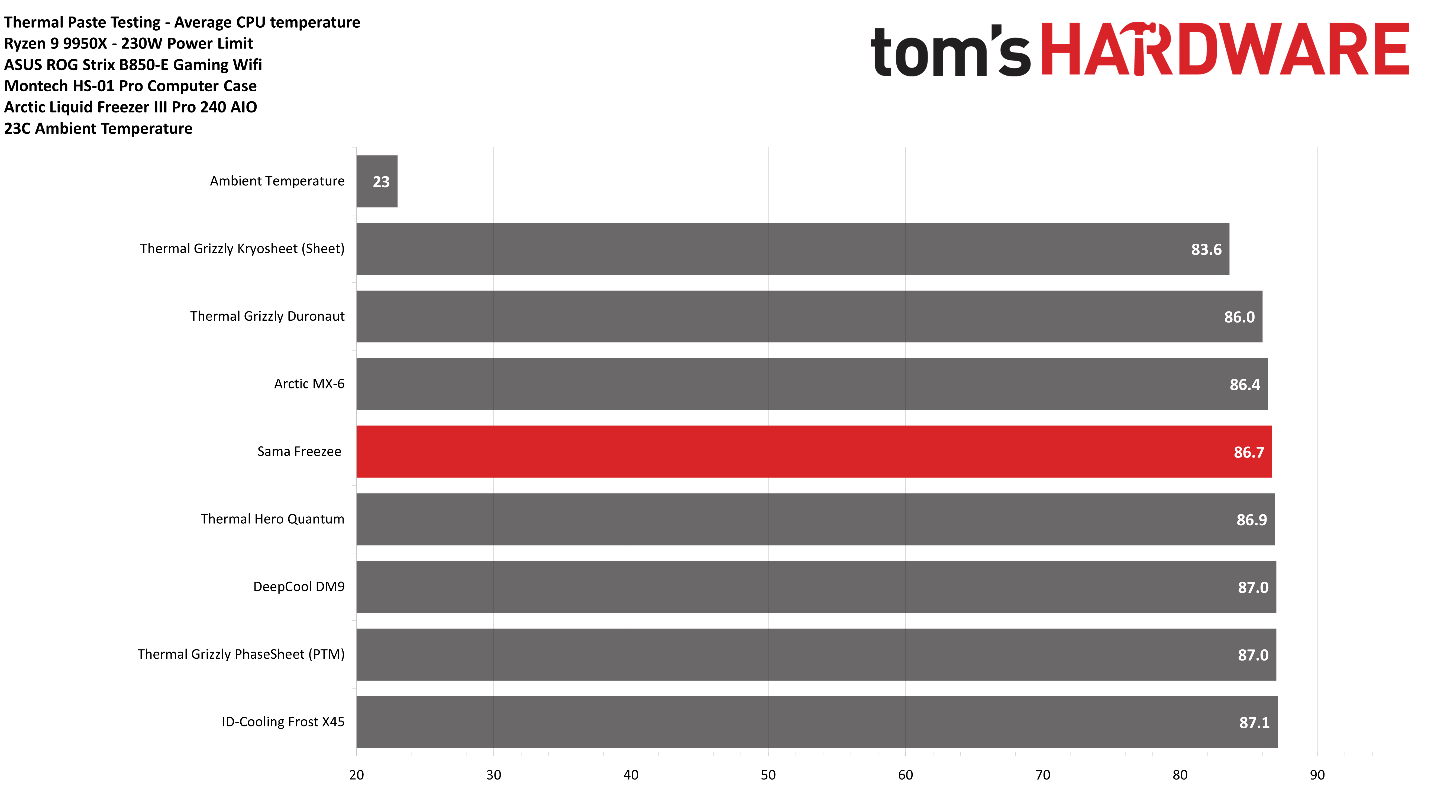
One observation I had with the above testing: Thermal Grizzly’s Kryosheet performs extremely well when paired with an AMD Ryzen 9000 series CPU, so I also tested the A60E with both the included Freezee paste and Kryosheet.
There are a few differences to point out in this test that you should keep in mind when comparing the two paste testing results.
- I used AMD’s Ryzen 9 9950X3D instead of AMD’s Ryzen 9 9950X.
- The test above uses a liquid cooler, while the test below uses the Sama A60E air cooler
- There is a lower power limit of 215W
- This test measures the maximum temperature, while the previous test measures the average temperature
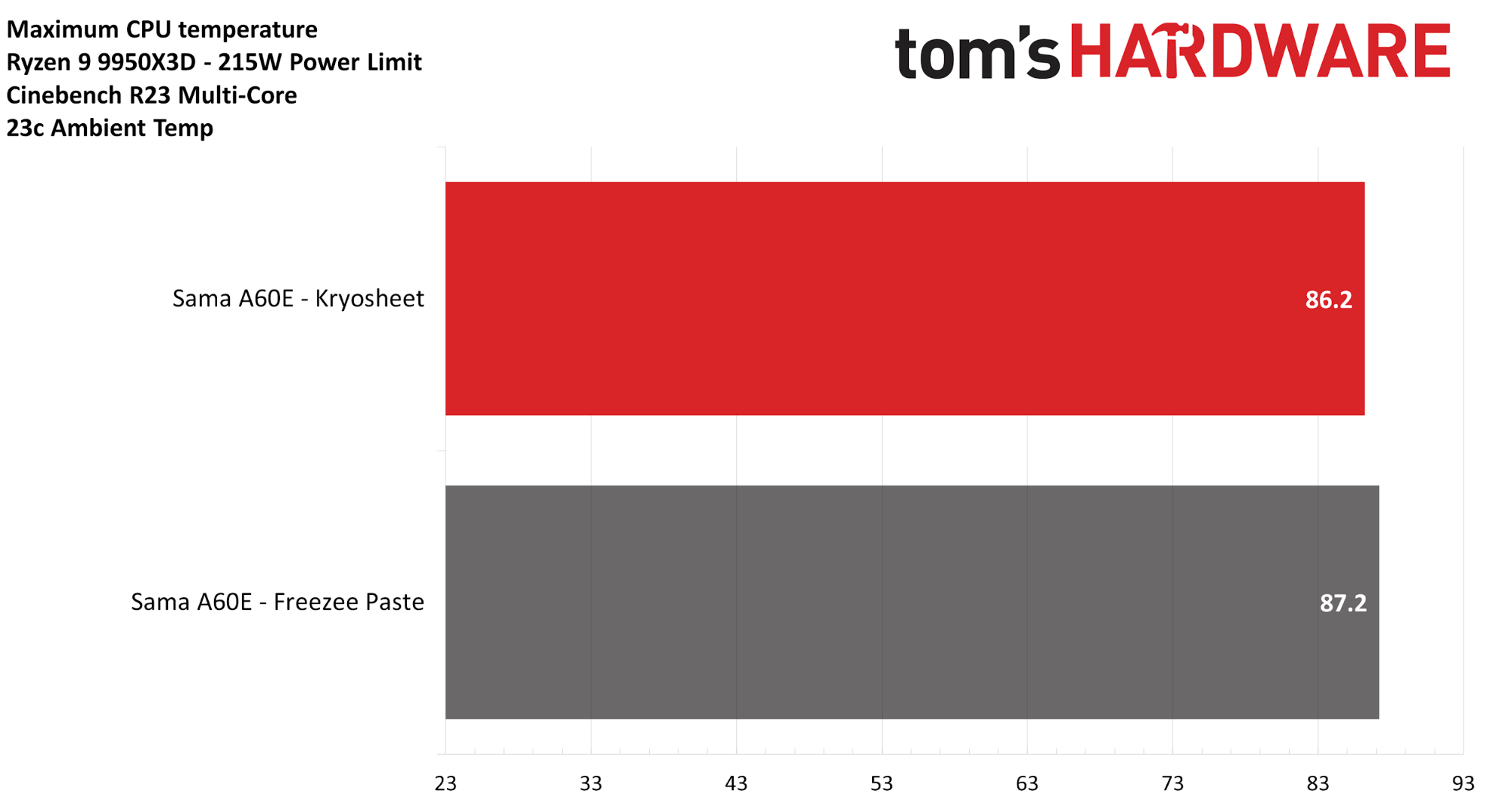
With a 215W power limit imposed on AMD’s Ryzen 9 9950X, the A60E had only one degree of difference when I tested the Freezee thermal paste against Thermal Grizzly’s Kryosheet. This seems pretty decent, but there might be bigger differences if I had raised the power limit to 225W. You should also keep in mind this last test measures the maximum temperature. Still, if you’re buying a $59 air cooler, my testing shows you shouldn’t worry much about the thermal paste Sama includes with the A60E.
Maximum noise levels
Reaching a peak of 44.2 dBA, Sama’s A60E has a moderate maximum volume – similar to Noctua’s NH-D15 (G1) and BeQuiet’s Dark Rock Elite.
CPU-only thermal results with PBO enabled: AMD Ryzen 9 9950X3D
Without power limits enforced, the highest-end consumer CPUs will hit their peak temperature (TJ Max) and thermally throttle during intensive stress testing. This happens with even the strongest of air coolers and even most liquid coolers. For the best liquid coolers we’ve tested, the results of this test will be shown using the CPU’s temperature.
However, when the CPU reaches its peak temperature, I’ve measured the CPU package power to determine the maximum wattage cooled, to best compare performance. Note that the thermal performance of any cooler can scale differently, depending on the CPU / platform being used.
Get Tom's Hardware's best news and in-depth reviews, straight to your inbox.
We’ll start by looking at the performance of this cooler with AMD’s flagship Ryzen 9 9950X3D CPU.
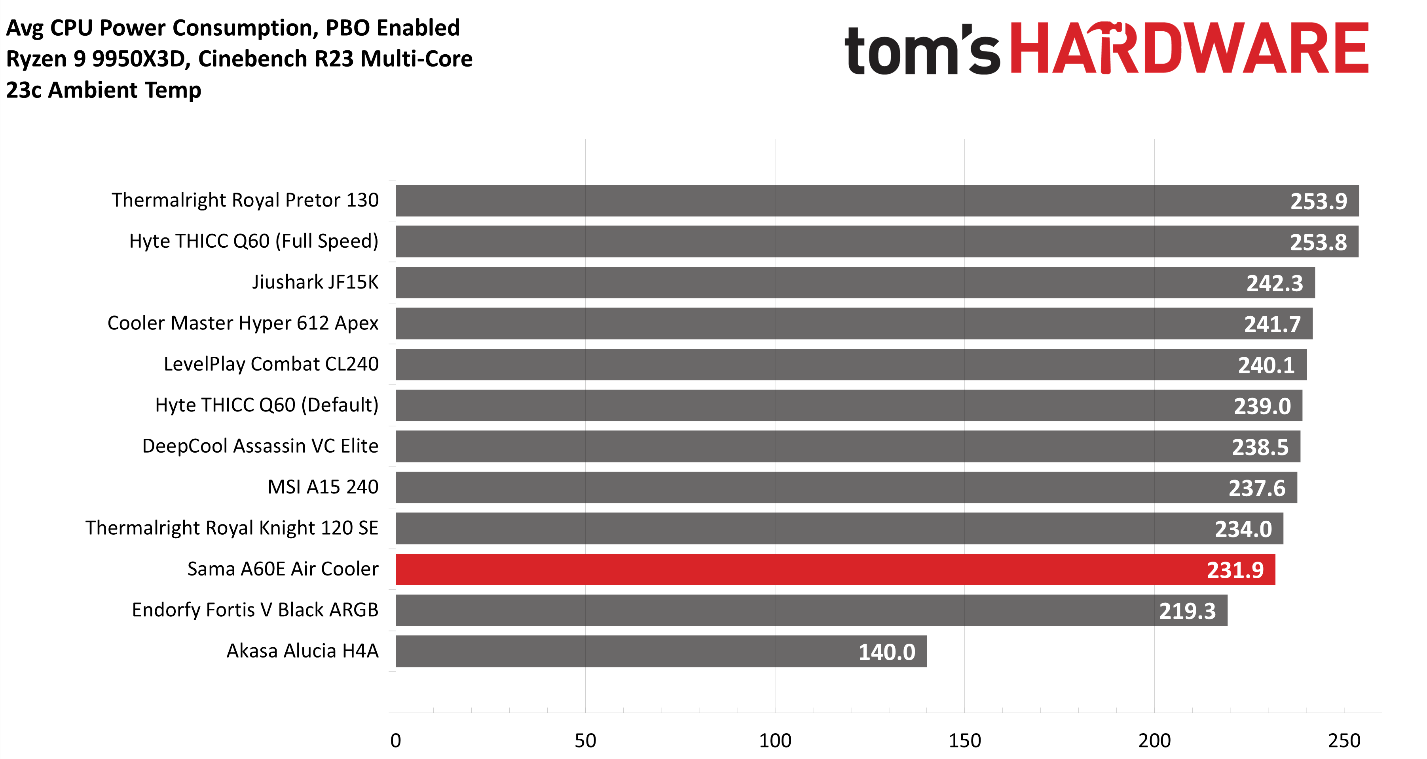
The strongest 360mm AIOs on the market can handle this workload without reaching the CPU’s peak temperature. With the disclaimer that we’ve only had a limited amount of time to test AMD’s Ryzen 9 9950X3D with coolers, only two AIOs have passed this test thus far: Arctic’s Liquid Freezer III Pro and NZXT’s Kraken Plus 360.
Sama’s A60E didn’t perform as well as we expected in this test, cooling 232W – but it performs much better in lower power scenarios, as you’ll see below.
CPU-only thermal results with power limits removed: Intel’s i7-14700K
Now let’s switch it up and take a look at how this cooler performs with Intel’s i7-14700K. Looking at the results here, we can see that some coolers scale better with Intel Core CPUs than they do on AMD’s platform.
Sama’s air cooler performed well with our Intel system, with similar results to ID-Cooling’s Frozen A620 and Thermalright’s Peerless Assassin 140.
200W Power Limit – AMD Ryzen 9950X3D
My recent reviews have focused more on tests with both the CPU and GPU being stressed, but readers have indicated they would like to see more CPU-only tests. Listening to that feedback, I’ve tested thermal and noise performance for AMD’s Ryzen 9 9950X3D at stock CPU settings, which limits power consumption to 200W.
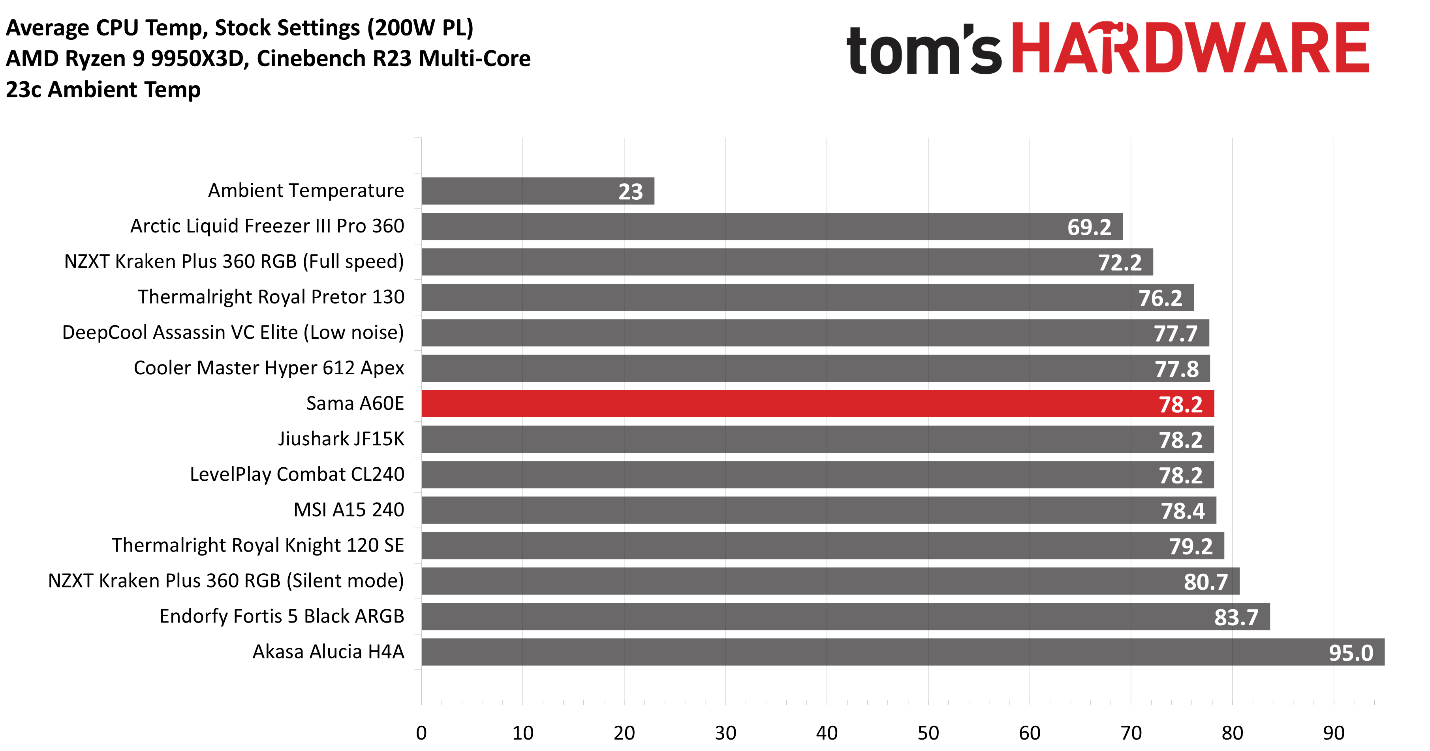
This test showed some interesting results, with Sama’s A60E performing on par with Jiushark’s JF15K and LevelPlay’s Combat CL240 AIO. Noise levels were moderate at 43.8 dBA.
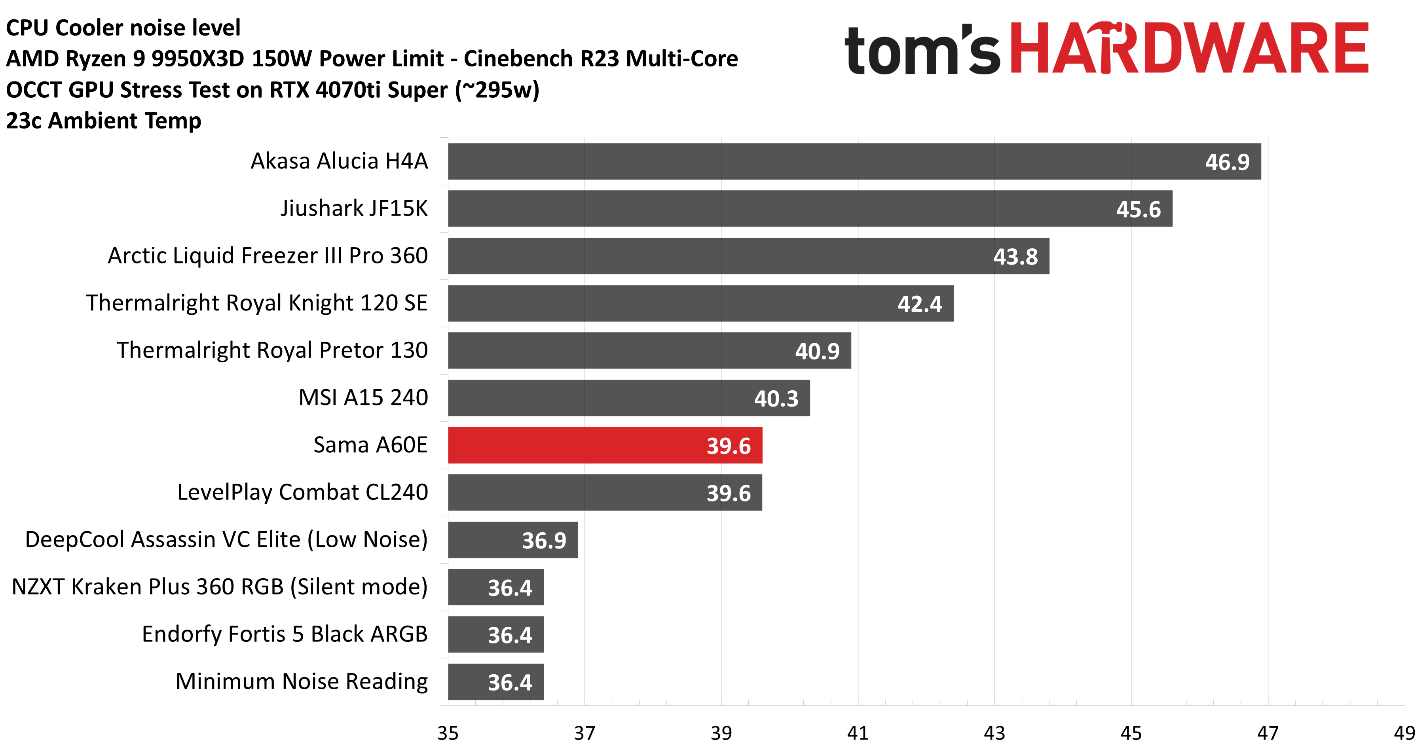
Noise Normalized CPU-only thermal results
Finding the right balance between fan noise levels and cooling performance is important. While running your fans at full speed can improve cooling capacity to some extent, the benefits are limited, and most users prefer a quieter system.
We’ll be looking at two different, distinct tests here. First, traditional noise-equalized results with Intel’s i7-14700K, which places a full CPU-only workload with the cooler’s noise levels set to 38.9 dBA. To make comparison to other air coolers easier, we’ve removed AIO results from this chart.
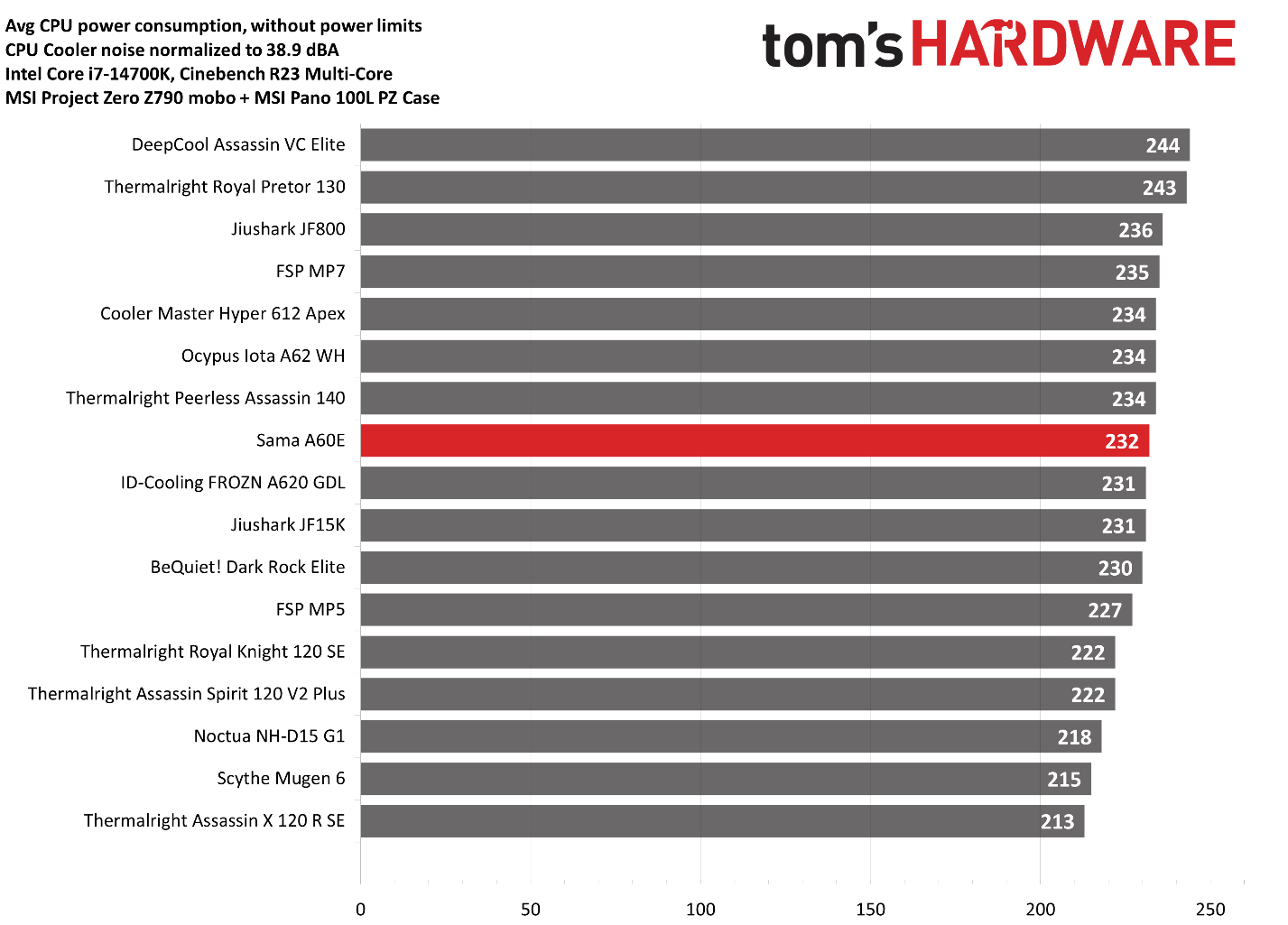
After setting the cooler’s noise level to 38.9 dBA, we found that Sama’s A60E performed on par with many of the best coolers on the market, like Thermalright’s Peerless Assassin 140 and ID-Cooling’s Frozn A620 GDL.
Now let’s take a look at our noise-equalized tests utilizing AMD’s Ryzen 9 9950X3D CPU. Two changes (in comparison to our previous test) have been made to increase the difficulty of this challenge. The noise level of the CPU coolers has been reduced further, to 37.3 dBA, and I’ve also run a full load on MSI’s RTX 4070 Ti Super GPU at the same time to increase the difficulty of this benchmark. One other challenge presented in this test is that the system fans have been reduced to 25% PWM, to emulate a low airflow environment.
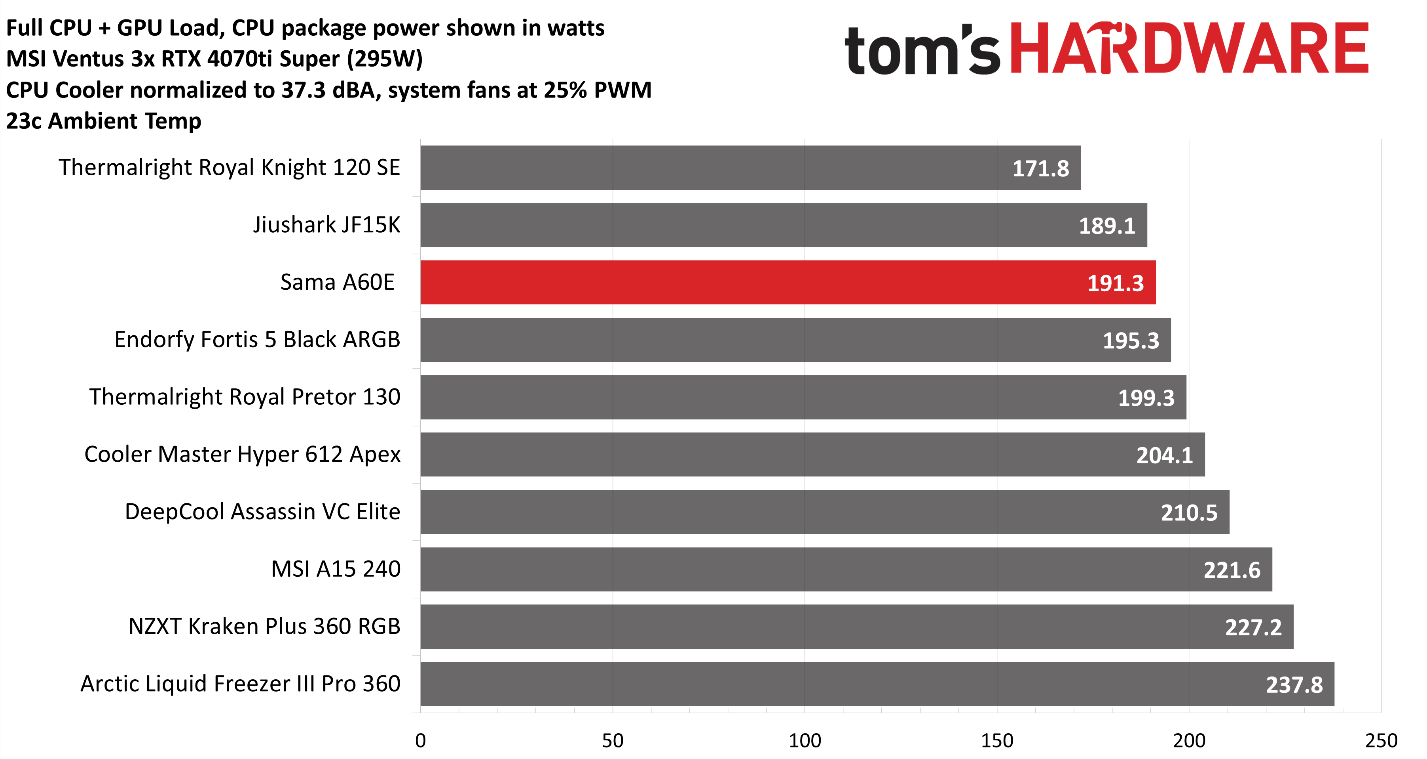
These results weren’t quite as good as we saw the cooler do elsewhere. The A60E cooled 191.3W, with our other results from dual-tower air coolers ranging between 189W and 210W.
150W CPU + 290W GPU results
Testing a CPU Cooler in isolation is great for synthetic benchmarks, but it doesn’t tell the whole story of how it will perform. If your GPU is running a full load, that heat doesn’t just disappear. It makes it harder for your CPU cooler to do its job because there’s extra heat to move out of the case.
A CPU power limit of 150W was chosen based on the worst CPU power consumption I’ve seen reported in gaming among various tech outlets covering AMD’s Ryzen 9 9950X3D. My personal experience has shown that most games use much less power, but this might be biased by the games I play.
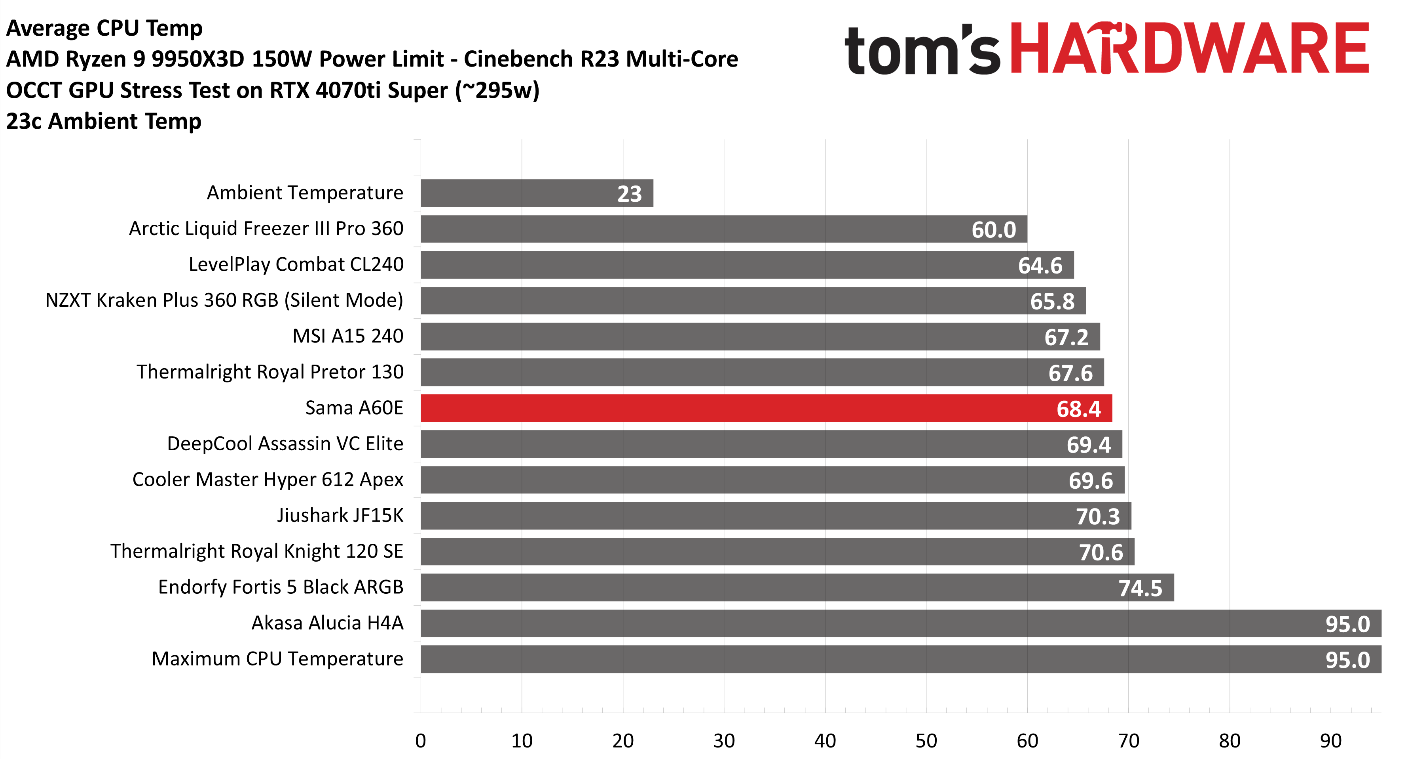
With this benchmark, we’re seeing better performance than expected, with the A60E outperforming DeepCool’s Assassin VC Elite, and just a little bit behind Thermalright’s flagship Royal Pretor 130.
I’ve also started to record GPU temperatures for this test, but there hasn’t been much variation so far.
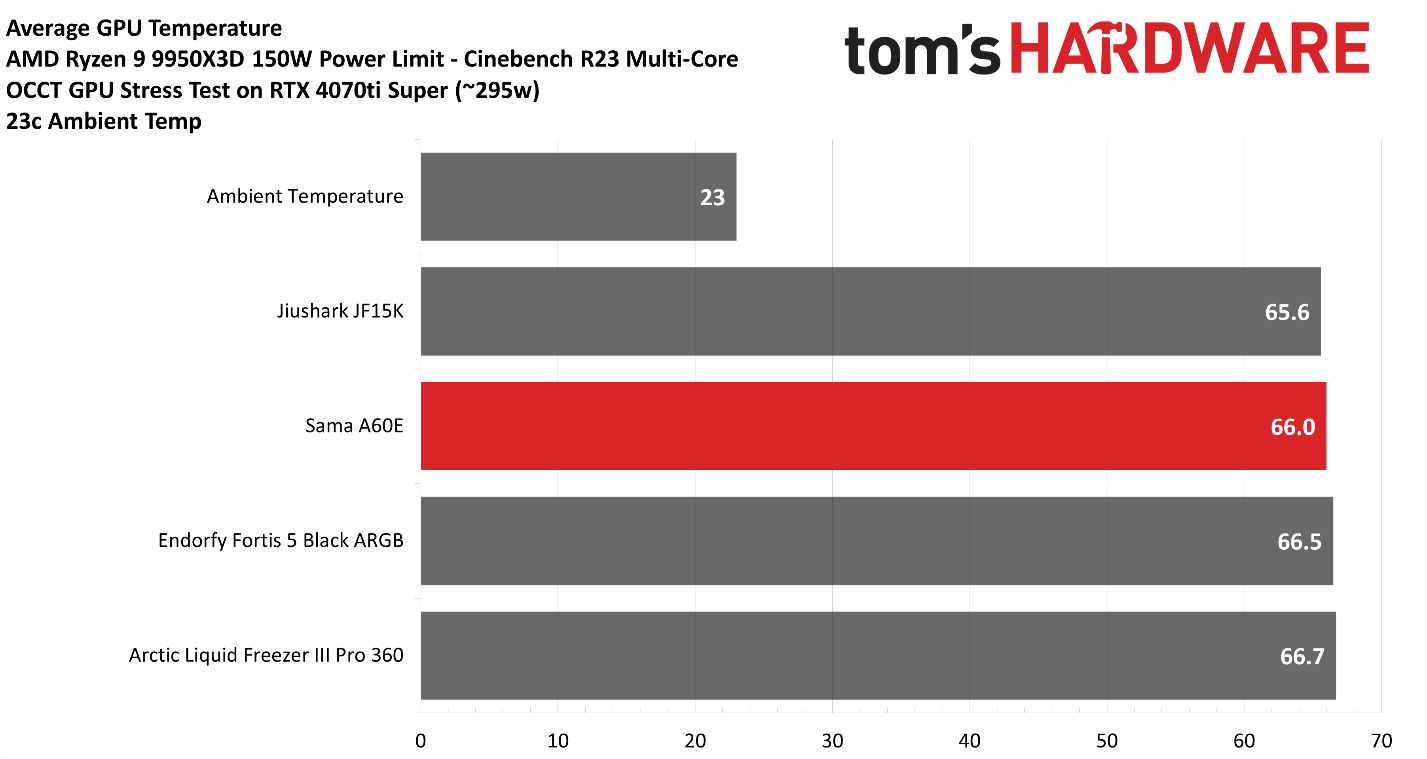
And of course – we need to go over the noise levels of the CPU cooler in this scenario, too. At 39.6dBA, Sama’s A60E was one of the quietest recorded in this test.

140W CPU results
The last round of test results we’ll look at is with a 140W power limit imposed. This level of power is dramatically easier to cool for most CPU coolers – and as a result, this is the easiest test we’ll run with AMD’s Ryzen 9 9950X3D CPU for most reviews. But I’ve recorded lower power results for comparisons with SFF and air coolers for future reviews.
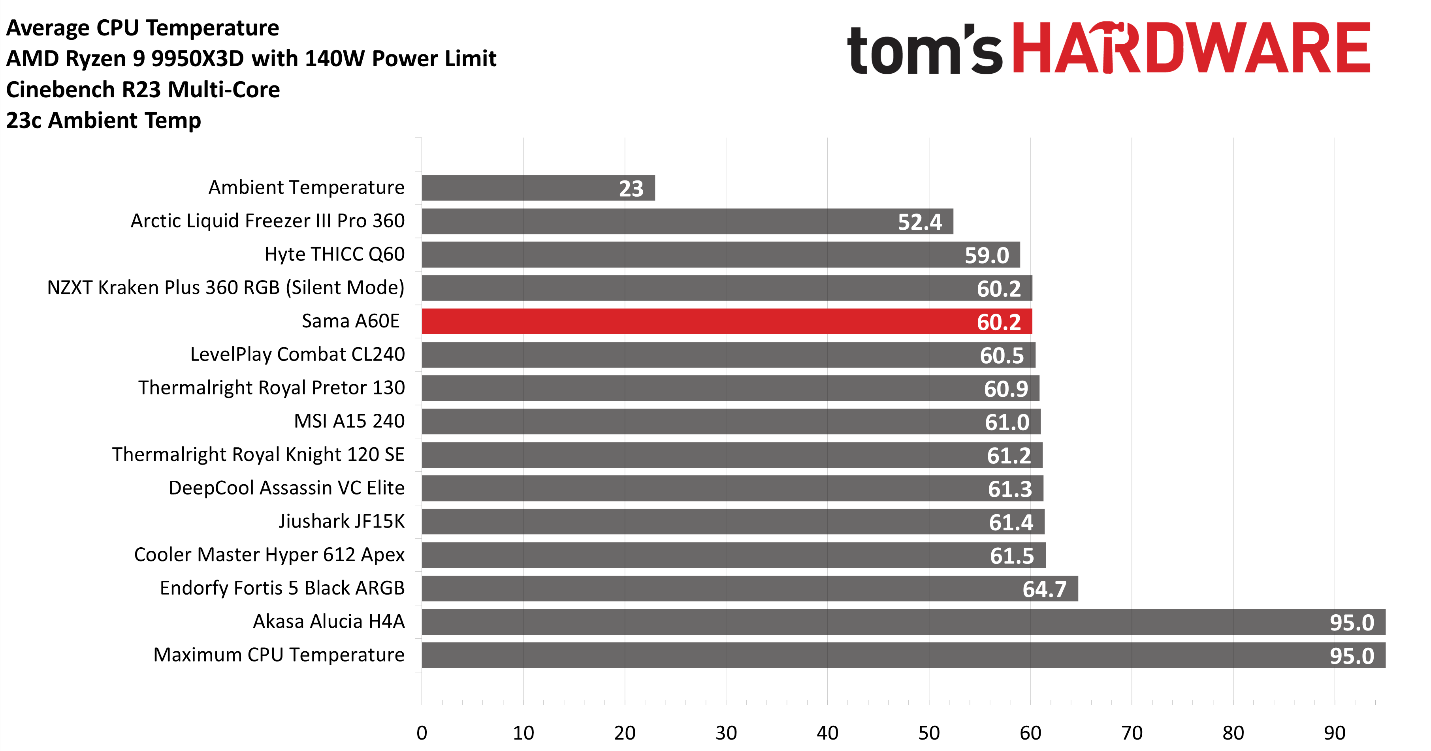
In this test, most of our coolers deliver similar performance. The more important factor here is the noise level of the cooler. And at only 37.3 dBA, Sama’s A60E is the second-quietest result on this chart.
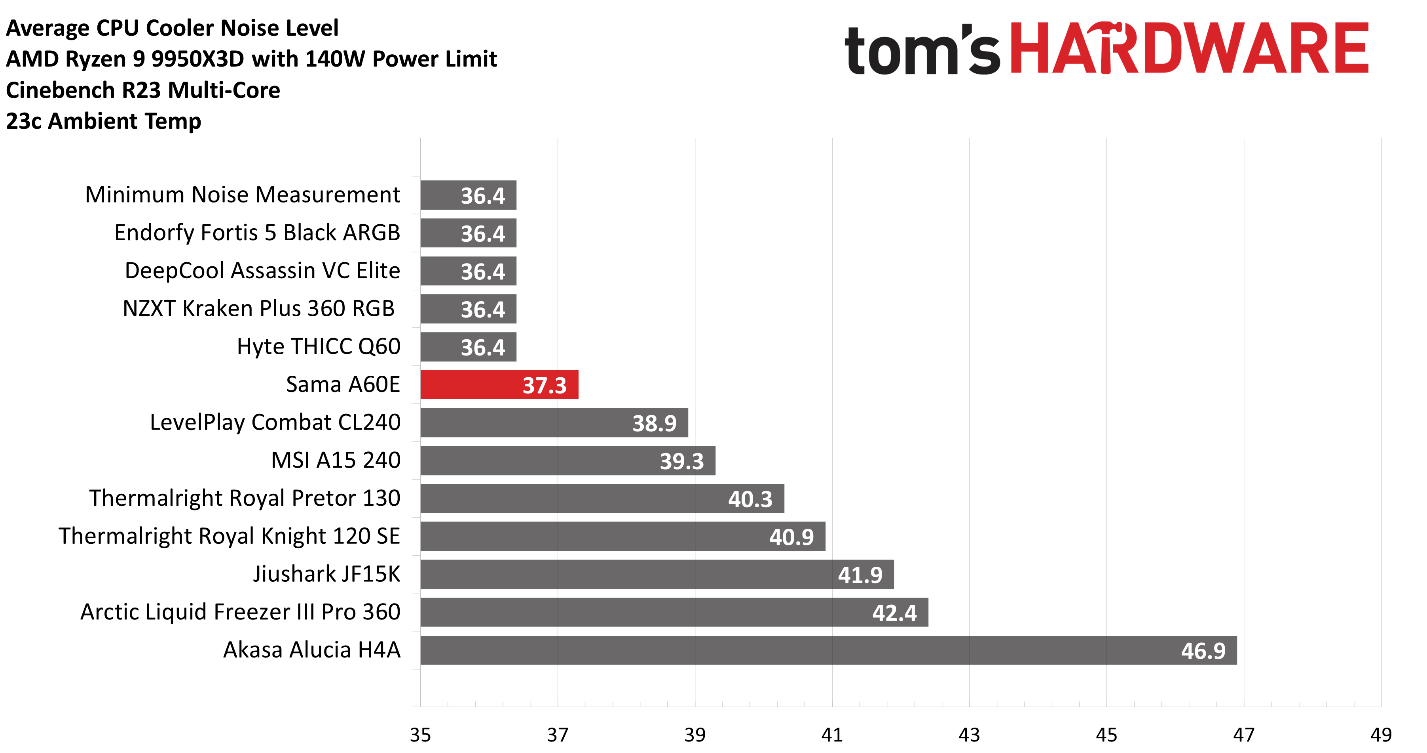
Conclusion
Sama’s entrance to the air cooling market with the A60E is a reasonable one. It provides generally good performance, low noise levels, and will appeal to those who want a more traditional look without ARGB. But its real challenge is price. At $59, it’s hard to strongly recommend when top-tier air coolers like Thermalright’s Royal Pretor 130 sell for as little as $40.

Albert Thomas is a contributor for Tom’s Hardware, primarily covering CPU cooling reviews.
-
thestryker It's always good to see new entrants bringing decent performance. Unfortunately I'm not seeing anything that really differentiates this from the competition.Reply
Price is definitely the killer when breaking into this market now. I don't expect anyone to really be able to match the pricing of Thermalright due to their vertical integration, but companies do need to bring something different to the table if it isn't price. The Hyper 612 Apex is an example of exactly that where the cooling is good, but it's also a rather small cooler compared to similar performing air coolers.
